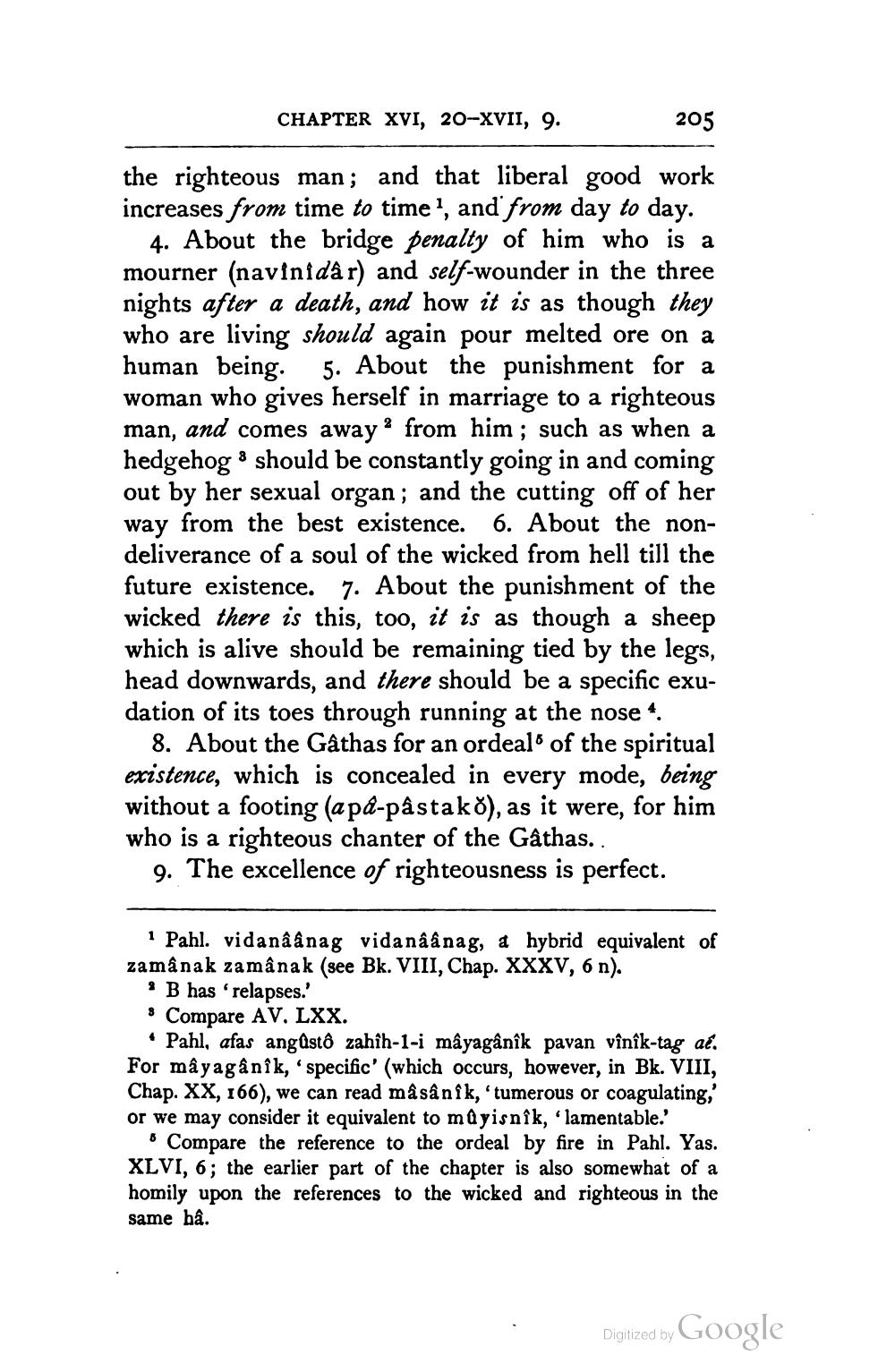________________
CHAPTER XVI, 20-XVII, 9.
205
the righteous man; and that liberal good work increases from time to time, and from day to day.
4. About the bridge penalty of him who is a mourner (navinidâ r) and self-wounder in the three nights after a death, and how it is as though they who are living should again pour melted ore on a human being. 5. About the punishment for a woman who gives herself in marriage to a righteous man, and comes away from him ; such as when a hedgehog 8 should be constantly going in and coming out by her sexual organ; and the cutting off of her way from the best existence. 6. About the nondeliverance of a soul of the wicked from hell till the future existence. 7. About the punishment of the wicked there is this, too, it is as though a sheep which is alive should be remaining tied by the legs, head downwards, and there should be a specific exudation of its toes through running at the nose 4.
8. About the Gâthas for an ordeals of the spiritual existence, which is concealed in every mode, being without a footing (a på-påstako), as it were, for him who is a righteous chanter of the Gathas.
9. The excellence of righteousness is perfect.
1 Pahl. vidanâanag vida nâanag, a hybrid equivalent of zamânak zamânak (see Bk. VIII, Chap. XXXV, 6 n). * B has relapses.'
Compare AV. LXX. * Pahl, afas angūsto zahîh-1-i mâyagânîk pavan vînîk-tag aé. For mâyagânîk, specific' (which occurs, however, in Bk. VIII, Chap. XX, 166), we can read måsânik, tumerous or coagulating,' or we may consider it equivalent to mayisnik, lamentable.'
Compare the reference to the ordeal by fire in Pahl. Yas. XLVI, 6; the earlier part of the chapter is also somewhat of a homily upon the references to the wicked and righteous in the same ha.
Digitized by Google




